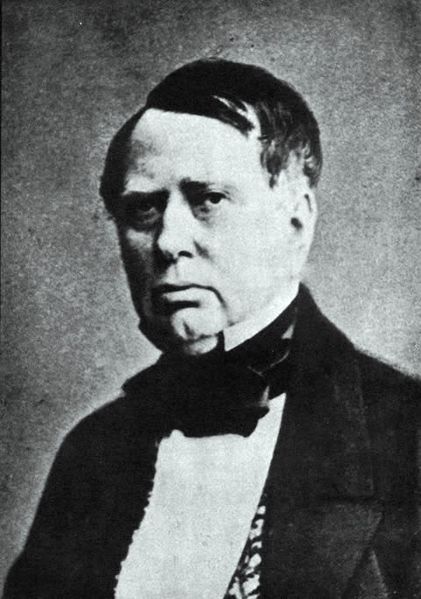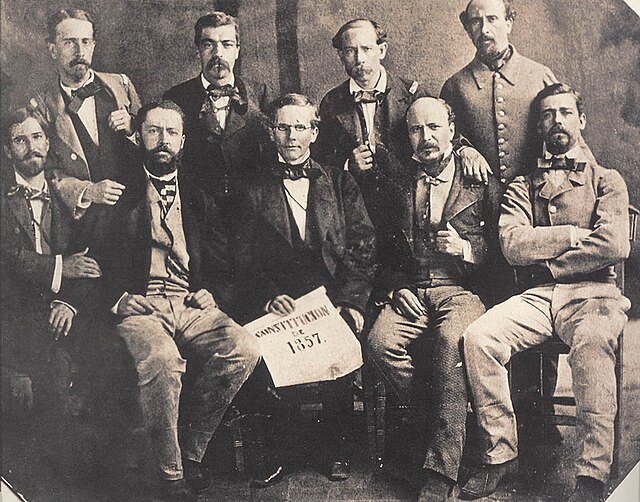Second French intervention in Mexico
The second French intervention in Mexico, also known as the Second Franco-Mexican War (1861–1867), was a military invasion of the Republic of Mexico by the French Empire of Napoleon III, purportedly to force the collection of Mexican debts in conjunction with Great Britain and Spain. Mexican conservatives supported the invasion, since they had been defeated by the liberal government of Benito Juárez in a three-year civil war. Defeated on the battlefield, conservatives sought the aid of France to effect regime change and establish a monarchy in Mexico, a plan that meshed with Napoleon III's plans to re-establish the presence of the French Empire in the Americas. Although the French invasion displaced Juárez's Republican government from the Mexican capital and the monarchy of Archduke Maximilian was established, the Second Mexican Empire collapsed within a few years. Material aid from the United States, whose four-year civil war ended in 1865, invigorated the Republican fight against the regime of Maximilian, and the 1866 decision of Napoleon III to withdraw military support for Maximilian's regime accelerated the monarchy's collapse. Maximilian and two Mexican generals were executed by firing squad on 19 June 1867, ending this period of Mexican history.

French troops enter Mexico City
Bazaine welcomed to Guadalajara
Soldiers of the Imperial Mexican Army
Mexican Imperial counter-guerrilla forces who were commanded by Charles Dupin.
Second Federal Republic of Mexico
The Second Federal Republic of Mexico refers to the period of Mexican history involving a second attempt to establish a federal government in Mexico after the fall of the unitary Centralist Republic of Mexico in 1846 at the start of the Mexican-American War. It would last up until the Second French Intervention in Mexico led to the proclamation of the Second Mexican Empire in 1863.
President Manuel de la Peña y Peña
President Mariano Arista
Liberals posing with a copy of the Constitution of 1857.
Conservative President Miguel Miramon.








